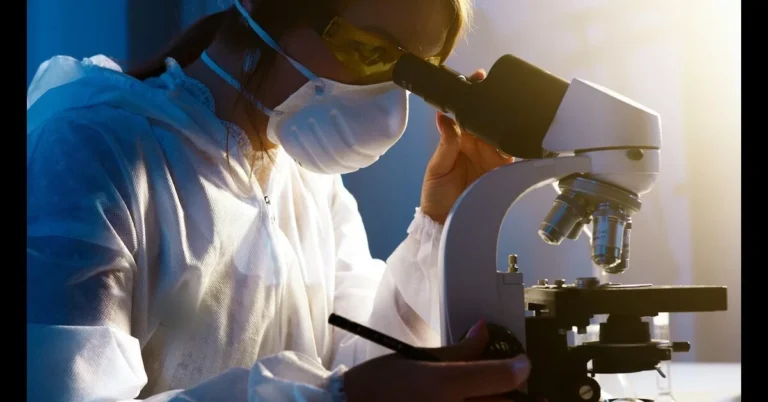Why Experts Now Say Not to Remove Your Wisdom Teeth
Routine removal of wisdom teeth was once a widespread dental practice. However, experts now recommend a more cautious approach, advising patients to keep their wisdom teeth if no issues arise. The shift toward conservative dentistry reflects a deeper understanding of individual oral health needs, reducing unnecessary surgeries and minimizing risks associated with extractions. This article explores the reasons behind this change, when extraction might still be necessary, and how to care for wisdom teeth effectively.
Why Experts Now Say Not to Remove Your Wisdom Teeth: New Insights
Dentists no longer believe every wisdom tooth must be removed as a preventive measure. Instead, advancements in diagnostic tools such as CBCT scans and 3D imaging help professionals determine if these teeth will pose future problems. This change allows patients to avoid surgery unless absolutely necessary.
Key Reasons for Keeping Wisdom Teeth
- Reduced Surgical Risks:
- Surgery carries risks like infection, nerve damage, and prolonged swelling.
- Dry socket (when a blood clot fails to form properly) can cause severe pain and delay healing.
- Maintaining Jaw Structure:
- Wisdom teeth can help stabilize nearby teeth and preserve jaw alignment.
- Removing teeth leaves gaps, increasing the chance of neighboring teeth shifting.
- Faster Recovery and Lower Costs:
- Avoiding surgery eliminates the need for post-operative care, saving time and money.
- Patients can avoid missing work or experiencing significant discomfort post-surgery.
When Removal Is Still Necessary
There are specific scenarios where removing wisdom teeth is essential to prevent more serious issues:
| Reason for Removal | Description |
| Impacted Wisdom Teeth | Teeth trapped under the gums, often causing infections or pain. |
| Crowding or Misalignment | When wisdom teeth push against neighboring teeth, disrupting alignment. |
| Orthodontic Interference | Extraction may be necessary before starting braces. |
| Recurrent Infections | If infections persist despite good hygiene, surgery is recommended. |
| Tooth Decay and Damage | Teeth prone to decay due to difficult cleaning can require removal. |
How to Care for Wisdom Teeth and Avoid Complications
If you decide to keep your wisdom teeth, proper care is essential to prevent future issues. Below are some practical tips for maintaining oral health:
- Brush Thoroughly: Use a toothbrush with a small head to clean around the wisdom teeth.
- Floss Regularly: Flossing between the molars prevents plaque buildup.
- Use Mouthwash: Antibacterial mouthwash helps reduce the risk of infections.
- Monitor for Symptoms: Regularly check for signs of swelling or discomfort.
- Routine Dental Check-ups: Schedule annual dental visits to monitor the condition of your wisdom teeth.
These practices ensure that your teeth stay healthy and that any potential issues are identified early.
Also Read: Tooth Crown Before and After
Real-World Opinions: Wisdom Teeth on Reddit and Quora
Public platforms like Reddit and Quora are filled with discussions about whether to remove or keep wisdom teeth. Some users report keeping their teeth without problems, while others share stories of painful infections that required removal. Many people express concerns about complications, such as dry sockets, influencing decisions toward surgery. These conversations highlight the importance of personalized dental advice.
Frequently Asked Questions
1. Should I remove my wisdom teeth if they don’t hurt?
Not necessarily. If your wisdom teeth are not causing pain or other symptoms, experts recommend monitoring them with regular dental check-ups rather than opting for immediate removal.
2. Can wisdom teeth stay healthy long-term?
Yes. Many people live with their wisdom teeth without experiencing any issues. Regular oral hygiene practices and dental visits can help ensure their health.
3. How do I know if my wisdom teeth are impacted?
Impacted wisdom teeth often cause pain, swelling, and difficulty opening the mouth. A dentist can confirm impaction with X-rays or a 3D scan.
4. What are the risks of removing wisdom teeth?
Common risks include infections, nerve damage, prolonged swelling, and dry sockets. In rare cases, removal can lead to long-term complications, such as jaw stiffness.
5. How often should wisdom teeth be checked if not removed?
Experts recommend annual dental exams to monitor the condition of retained wisdom teeth, ensuring no issues arise.
Key Differences Between Keeping and Removing Wisdom Teeth
| Aspect | Keeping Wisdom Teeth | Removing Wisdom Teeth |
| Cost | Minimal, limited to routine dental visits. | Higher due to surgical and post-op care. |
| Recovery Time | No recovery required. | 1–2 weeks recovery with potential discomfort. |
| Risks | Low, with good hygiene practices. | Risk of infection, dry socket, and nerve damage. |
| Impact on Oral Health | Preserves natural tooth structure. | Can prevent alignment issues if crowding is likely. |
Conclusion: Why Experts Now Say Not to Remove Your Wisdom Teeth
The shift in dental advice reflects a growing focus on personalized, evidence-based care. While removal is still necessary for impacted or problematic teeth, many patients can now keep their wisdom teeth without complications. This conservative approach reduces surgical risks, saves money, and helps maintain oral health. If you’re unsure about what’s best for you, consult with your dentist for individualized guidance. Regular check-ups ensure any issues are caught early, allowing for treatment only when necessary.
Choosing to keep your wisdom teeth, when appropriate, offers long-term benefits that align with modern dental practices. With proper care, many people live comfortably with their wisdom teeth throughout their lives.
Related Posts:
Before and After Partial Dentures: Transform Your Smile with Confidence
Tooth Is Loose but Still Attached in Adults: Causes, Treatment Options, and Prevention
First Night After Tooth Extraction: Essential Tips for Rest, Healing, and Comfort
How Long Does a Crown Take? Traditional vs. Same-Day Crowns Explained
What to Do When Food Stuck in Wisdom Tooth Hole: Safe Removal Tips and Prevention
NY Monthly is a digital publication focused on exploring the pulse of New York City. Covering everything from travel, lifestyle, food, arts, business, and culture, NY Monthly brings the best stories to life. Our mission is to inform, inspire, and connect readers with the latest trends and hidden gems throughout the city and beyond.






